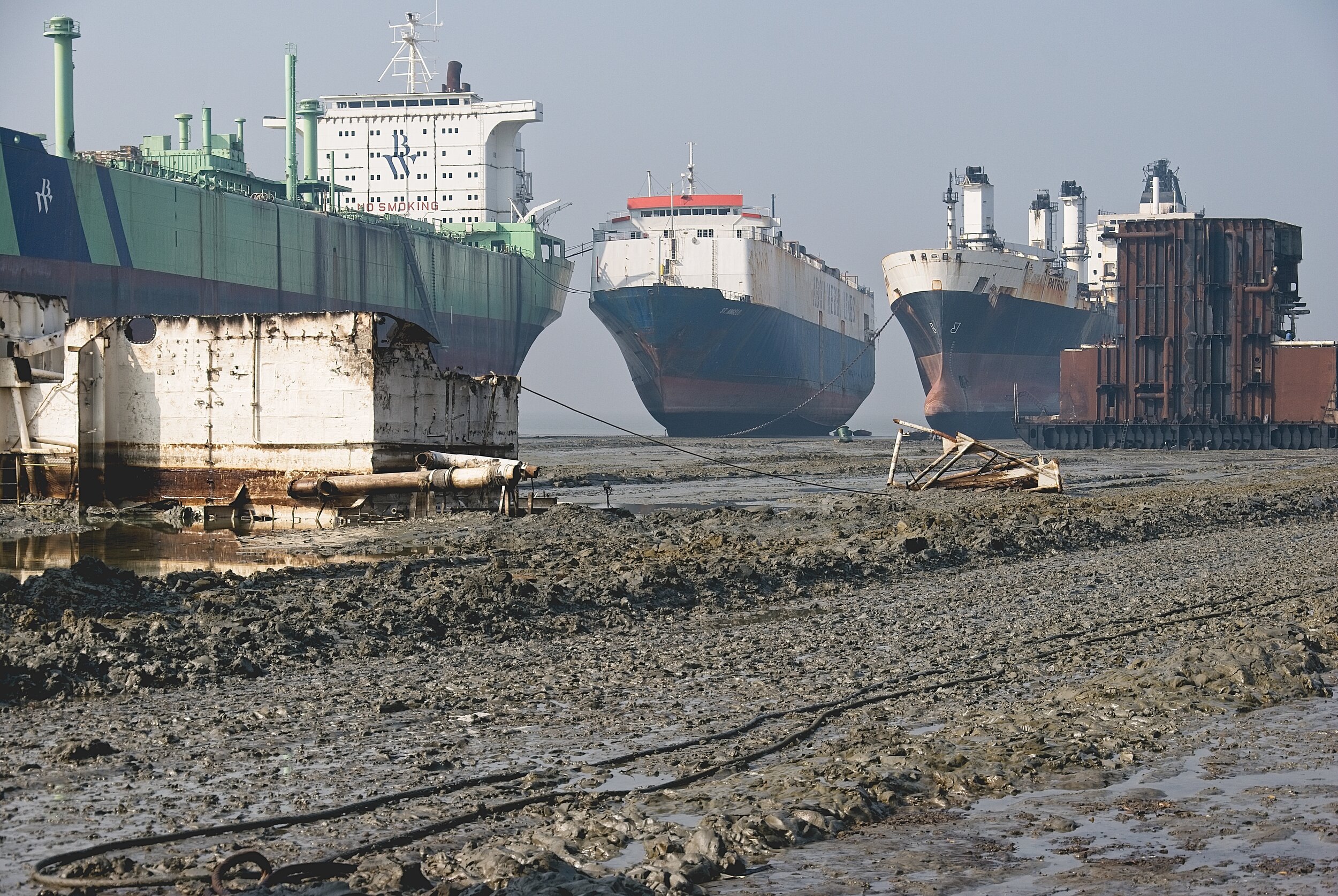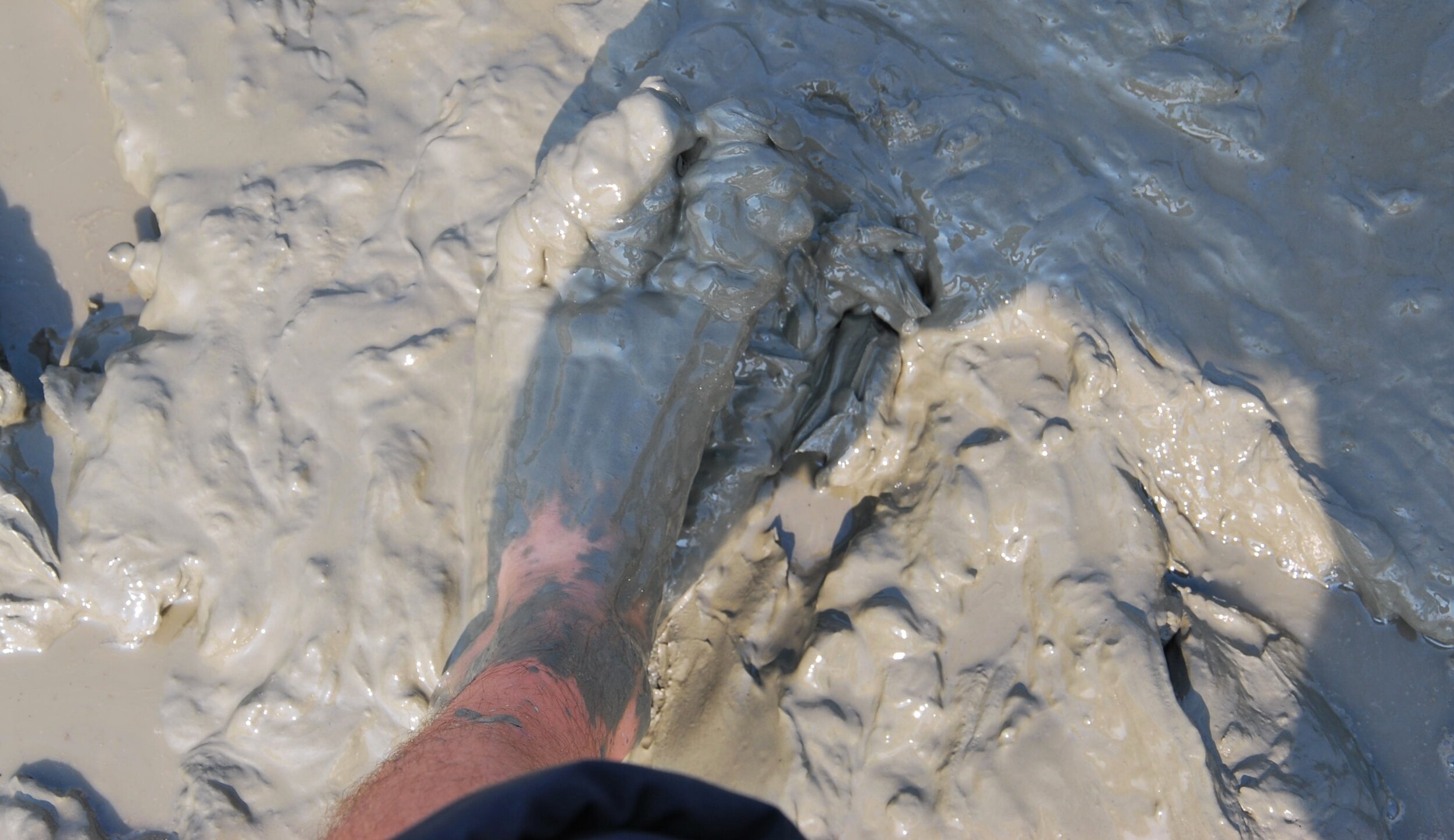114 - Abandon Ship (Chittagong, Bangladesh)
DYSTOPIAN MAGNIFICENCE. That’s the oxymoronic setting you’ll find along Chittagong’s northwest shore, twelve miles from the city center. An experience like no other. From the moment I discovered the ship-breaking yard’s existence, I knew I had to see it. Yet, there was a problem. The yards in Chittagong and elsewhere (Russia, Turkey, Pakistan, India, etc.) are controversial—a simultaneous environmental catastrophe and human tragedy rolled into one heart-wrenching clusterfuck. Negative international press coverage and first-world activism made access difficult. (Now? Not so much. See here, here, here, or here.) My original plan was to troll the coast with a compact camera and shitload of perseverance. But, as luck would have it, Rahmat, an employee at my hotel, entered my life.
His enthusiasm was infectious, and he assured me access would be no problem. We met in the morning in front of the hotel. He hailed a CNG (autorickshaw), and we were off. I was skeptical, but would soon discover the source of his confidence. Not only did he have an inside connection, he was a former employee. An uncle and a cousin were employed there, his uncle being a foreman.
After a half-hour drive, we took a left down a dirt road that snaked through a village, ending at makeshift corrugated tin shops catering to shipyard workers. He told me to wait while he surveyed the situation and recommended I hide my camera (larger one) until we were closer. I did as he suggested, concealing my Nikon underneath my shirt. A few moments later, he ushered me forward, and we walked together through a tin barricade towards the shore. Nobody stopped us. At any moment, I expected someone to intervene and send my ass packing.
And there I was. Along the coast, as far as I could see, were gargantuan vessels in varying stages of deconstruction stranded in the muck. We approached a group of gentlemen who appeared to hold oversight capacity. Again, I was expecting protest, but it didn’t come.
Although I was uneasy for the first twenty minutes, my concerns were unwarranted. Rahmat’s family connection made all the difference—I was given free rein. Everyone seemed at ease with my presence, and many workers requested photographs. I assume he assured them I wasn’t a journalist or activist, but I’m still shocked they were so nonchalant.
When refitting an aging vessel becomes cost prohibitive, it’s sent to places like Chittagong to be dismantled and sold for scrap. Supertankers and other large ocean-going vessels are driven full speed ahead until beached as close as possible to the high tide line, still a considerable distance from the shore. Workers are required to tread through the mud and begin where the giants come to rest. As ships are torn asunder, pieces, chunks, and fragments are dragged via small and large flat sheets of metal entirely by manpower.
A crew was dismantling a small ship section where I stood. Tools of choice? Sledgehammers and blowtorches. Folks working on the second level were so excited, they motioned for me to join them. A bit foolhardy, to say the least, but I couldn’t resist, so I ascended an unstable ladder and had a gander. Up there, I tried to visualize what it would be like doing this day in and day out with little or no safety gear, a skittish supervisor deemed it a bridge too far and implored me to descend. No reason to push my luck, so I complied.
The shipyards have no shortage of peril. Rahmat said men died the week before. Severe injury and death were all too common. Some of these “men” had conspicuously youthful appearances. Appearances were not deceiving. I discovered a 13-year-old boy in the mix, but I’m certain others were no older than 10 or 11.
I asked Rahmat why he worked there, and why he'd quit. Domestic violence (his father had been beating him) forced him to run away. This is where he ran. As you can guess, the salary is relatively high for the underprivileged. Rahmat earned 6000 taka ($85) a month, roughly three dollars a day, somewhere in the middle of the pay scale. Children fare much worse. According to Rahmat, they were lucky to earn 3500 taka ($50) a month. I’m sure salaries “skyrocket” if you have a skill (welding, metal-working, equipment operator, etc.).
After three months, he had enough. The danger was too great, so he quit and returned home. It was unclear if he ever told his parents where he'd been. He was hoping to find work in Dubai, but the cost of a visa was high ($200-$300). (Little did he know, foreign laborers in Dubai are a slight notch above slaves.) He was unsure if he’d return to the yards, but I sensed only genuine desperation would lead him back.
After taking shots of the shoreline and vicinity, I asked if we could venture farther out. No problem. We doffed our footwear and slithered seaward. Not only was the mud extremely slick, I also had to be on guard for protruding metal pieces and other hazards hidden beneath the surface. Prudence dictated I follow close behind Rahmat. Notwithstanding physical dangers, I can only imagine what types of toxic chemicals are embedded in the slime. (I hear PCB-laced mud does wonders for skin rejuvenation).
What a scene. On one side was a large ship with its skeleton exposed, and on the other silent leviathans awaiting execution of their death sentence. Partial corpses were strewn about, each disintegrating day by day as pieces were removed and carried away. In the distance, I witnessed workers going about their duties, appearing like ants juxtaposed along those behemoths. Hard to believe mortals were capable of felling such giants, a task more appropriate for titans.
I stood in the mire trying to digest this alternate reality. Any way you slice it, the scene was a constant tragedy unfolding. Children without a childhood? Men without a choice? A government without a conscience? No, that's too easy. Nothing is black and white. Nothing is ever that simple. Child labor is horrible, but what other options are there? Take away their jobs, and where does that leave them? Their families? Is dangerous work better than no work at all? Increase oversight. Increase safety standards. Lower profits. Lower wages. Choices. Terrible, terrible choices. You could blame the government, I suppose, but before pulling that trigger, delve into the history of this star-crossed nation. It’s suffering and calamity on a Grecian scale. There’s a reason Henry Kissinger once referred to Bangladesh as the “basket case of Asia.”
To say I was ambivalent as I left that scene would be an understatement. I thanked all who were present for allowing me to wander around. More smiles, more of those damn smiles that carry irony, pathos, longing, hope, and a dozen other emotions and sentiments that tug at those existential heartstrings.
I am nobody
And nobody is me
Nobody is bound, but
Nobody is free
I've found nobody
And nobody's found me
Nobody is blind, but
Nobody can see...
On the way back, we stopped at a lifeboat graveyard. All those lifeboats, and no one to save. We also visited one of the many shops selling anything and everything related to life on the sea. Barometers, clinometers, clocks, sextants, compasses, nautical telescopes, radios, wooden steering wheels, and maps were all on display. I felt like a kid in a toy store. Rahmat had to get back to work, so I had no time to unbury the treasures within. I returned the following day with my friend Andy in tow. On account of his myriad purchases, the owner looked favorably on me and sold me a brass handheld telescope for the bargain price of $14.




































